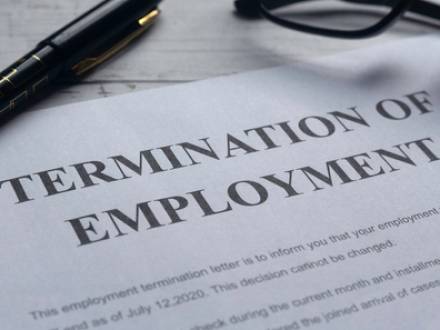Maryland Employees and the Rise of "Quiet Terminations"
 While you may not have been fired from your Maryland job, your hours have been slashed, your responsibilities minimized, and you are no longer invited to meetings by your manager. By any metric, you are being pushed out of your job. This growing workplace tactic is known as "quiet termination" or "quiet firing," and allows employers to sidestep the legal fallout that a formal dismissal could bring.
While you may not have been fired from your Maryland job, your hours have been slashed, your responsibilities minimized, and you are no longer invited to meetings by your manager. By any metric, you are being pushed out of your job. This growing workplace tactic is known as "quiet termination" or "quiet firing," and allows employers to sidestep the legal fallout that a formal dismissal could bring.
However, quiet terminations can still carry serious legal consequences. If the employee feels that the environment is so intolerable that he or she is forced to resign, Maryland employment law may see the situation as "constructive discharge." Constructive discharge is a wrongful act by an employer that gives employees potential grounds for a wrongful termination claim.
Perhaps you feel you are being quietly terminated, or you left a job because of these tactics. If so, it is important that you speak to a knowledgeable Ellicott City, MD employment law attorney to discuss your next steps. You may have a strong case for constructive discharge, but having an experienced legal advocate by your side is essential.
What is Quiet Termination?
Quiet termination is a term that describes a manager who makes an employee’s work environment so miserable or untenable that the employee feels forced to quit. Quiet termination is a non-confrontational way for an employer to push an employee out of the company without an overt firing. Signs of quiet termination may include:
- A reduction in hours
- Isolation from team decisions
- Removal of primary duties
- Being given impossible tasks
- Extreme and unwarranted job oversight or micromanagement
- Earned promotions that are denied
- Constant negative feedback
- Lack of support
- Job responsibilities or work schedules are negatively altered.
Employers use quiet terminations to avoid unemployment claims, severance obligations, or accusations of retaliation.
When Quiet Termination Crosses the Line Into Constructive Discharge
Under Maryland case law, a quiet firing may sometimes qualify as a constructive discharge. The standard for constructive discharge is that the working conditions are so intolerable that a reasonable person would feel compelled to resign. Constructive discharge is often associated with underlying hostile work environment, retaliation, or discrimination claims.
When a quiet termination is made in retaliation for reporting harassment, wage theft, or safety violations, or has a discriminatory motive, it becomes a constructive discharge. If the quiet termination follows a protected activity by the employee (such as whistleblowing or FMLA leave), then it could be viewed as constructive discharge.
What Should Employees Do if They Believe They Are Victims of Constructive Discharge?
Evidence of documentation of changes in hours, duties, or reviews is crucial. The employee should schedule a meeting with the manager to discuss performance and seek clarity on the job role. Document every adverse action and request explanations in writing.
Witness statements that show exclusion or retaliation can help make the case, as can an email or performance review trail that shows sudden negative treatment after a protected act. Report the conduct to HR, as this creates a record of notice. Consult an employment lawyer before quitting. The court will assess whether the resignation was a foreseeable result of the employer's conduct, so the timing matters.
Charges can be filed with the Maryland Commission on Civil Rights or the EEOC within 300 days. If employer conduct was extreme or it falls under constructive discharge, a civil suit for wrongful termination, breach of implied contract, defamation, or intentional infliction of emotional distress may be filed. Potential remedies include back pay, emotional distress damage, attorney’s fees, and possible reinstatement.
Contact an Annapolis, MD Employment Lawyer
If you believe you are being quietly terminated, do not wait until you are forced out. Maryland law may label what is happening as constructive discharge or retaliation, which gives you legal recourse. A highly skilled Ellicott City, MD wrongful termination attorney from Freedman Law, LLC can help document your situation, preserve your rights, and hold your employer accountable. Attorney Freedman is rated as one of the best employment lawyers in Annapolis, MD; he is very accessible, supportive, and aggressive when necessary. Call 410-290-6232 to schedule your initial attorney meeting.













